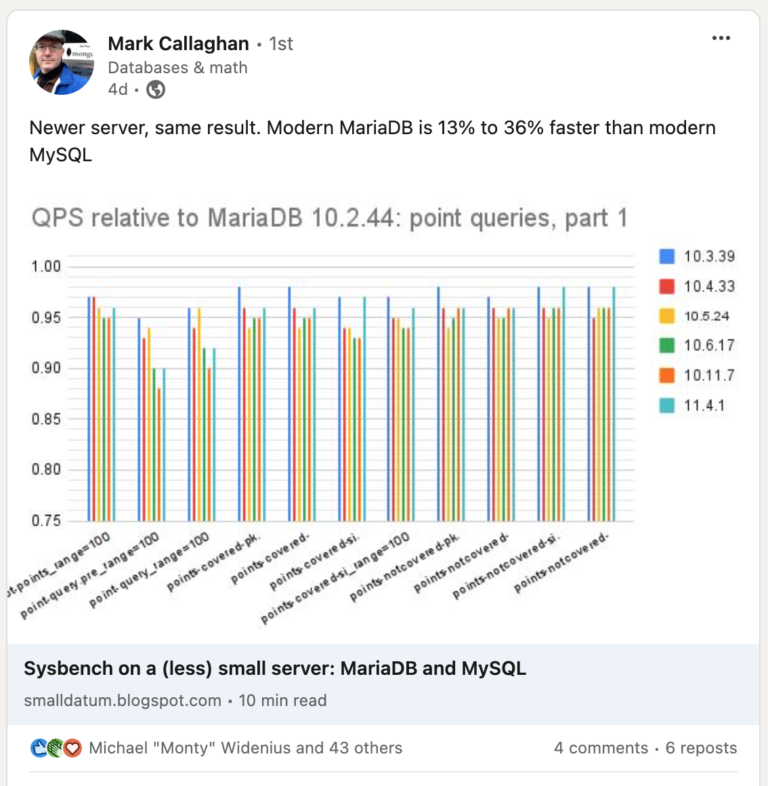Ready to unlock a whole new level of development and administration tools on your Rocky Linux system?
In this comprehensive guide, we explore the PowerTools repository, its importance in development and administration, and how to enable it on your system.
From advanced development tools to admin utilities, we delve into the features that PowerTools has to offer.
Learn how you can optimize your development processes and improve server administration with PowerTools for Rocky Linux.
Key Takeaways:
Introduction to PowerTools for Rocky Linux
PowerTools for Rocky Linux is a crucial repository that provides essential tools and packages for developers and system administrators using Linux distributions such as CentOS8 and RHEL8.
Ensuring that users have access to a wide range of software, PowerTools repository enhances system functionality by offering additional utilities, development libraries, and dependencies. This optimized repository greatly simplifies the process of installing, updating, and managing various software components within the Linux environment.
With full compatibility and support for popular distributions like Rocky Linux 9, CentOS8, and RHEL8, the PowerTools repository seamlessly integrates, allowing users to take advantage of its vast array of features without compatibility issues.
Overview of PowerTools Repository
The PowerTools Repository, also known as Code Ready Builder (CRB), is a comprehensive collection of software packages and tools accessible through the DNF package manager, enriched by the inclusion of the Extra Packages for Enterprise Linux (EPEL) repository.
These repositories serve as valuable resources for developers and system administrators seeking a wide array of applications and utilities to enhance their Linux environments. Users can leverage the PowerTools Repository to easily navigate, download, and install a plethora of software solutions for diverse needs.
CRB, a familiar acronym for PowerTools, offers a streamlined approach to accessing cutting-edge software components, ensuring that users can effortlessly stay up-to-date with the latest innovations in the open-source community. The collaboration with EPEL further expands the functionalities and choices available, enabling users to customize and optimize their systems effectively.
Importance of PowerTools in Development and Administration
PowerTools plays a pivotal role in enhancing the development workflow for developers by providing a wide array of software packages, while also offering critical utilities for system administrators managing Linux distributions.
For developers, having easy access to software packages means that they can swiftly integrate various functionalities into their projects, boosting productivity and saving time. The versatile utilities offered by PowerTools equip system administrators with the necessary tools to efficiently manage and troubleshoot their Linux systems, ensuring smooth operations and enhanced security measures. The comprehensive nature of these tools not only simplifies tasks but also fosters a more secure and optimized working environment. Understanding how to leverage the resources provided by PowerTools can significantly improve the efficiency of both development and system administration processes.
Enabling PowerTools Repository
Enabling the PowerTools repository on Rocky Linux involves a series of straightforward steps to access the repository’s extensive collection of tools and packages.
To start, ensure that you have administrative privileges to modify the system’s repositories. Open a terminal window and execute the command sudo yum install centos-release-
Next, configure the PowerTools repository by creating a new file /etc/yum.repos.d/powertools.repo using a text editor. Insert the repository configuration details, including the baseurl and enable options, as specified on the Rocky Linux documentation.
Steps to Enable PowerTools Repository on Rocky Linux
To enable the PowerTools repository on Rocky Linux, navigate to the terminal and utilize the appropriate commands to configure the repository settings and enable its access for installing essential tools and packages.
Once you have launched the terminal on your Rocky Linux system, you can start by updating your package manager’s repository index using the command sudo dnf update. This ensures that you are working with the most current package information available.
Next, to enable the PowerTools repository, run the following command: sudo dnf config-manager --set-enabled PowerTools. This step explicitly enables the repository, allowing you to access additional software packages essential for your system.
After enabling the PowerTools repository, proceed by refreshing the repository metadata with the command sudo dnf makecache. This action ensures that your system registers the newly added repository and its contents.
Installing DNF Plugins Package
Installing the DNF Plugins package from the PowerTools repository enhances the functionality of the DNF package manager by introducing valuable plugins that optimize package management tasks on Rocky Linux.
Once you have successfully added the DNF Plugins package, you gain access to a plethora of useful plugins designed to streamline various aspects of package management. These plugins can automate updates, resolve dependencies, and provide detailed insights into installed packages.
With the DNF Plugins package incorporated into your system, you can effortlessly perform tasks such as cleaning up orphaned dependencies, tracking package versions, and enhancing the overall efficiency of the package management process.
The integration of DNF Plugins from PowerTools enables you to expand the capabilities of the DNF package manager beyond its standard features, allowing for greater customization and control over software installations.
Adding EPEL Repository
Integrating the Extra Packages for Enterprise Linux (EPEL) repository alongside PowerTools expands the range of software offerings available on Rocky Linux, providing users with a broader selection of packages and updates.
By adding the EPEL repository, users can significantly enhance the functionality of their Rocky Linux by gaining access to a plethora of additional software not included in the base distribution. This integration opens up a world of possibilities, where users can explore new tools, libraries, and applications that are tailored to their specific needs.
Staying up-to-date with software updates is crucial for system security and performance. With EPEL and PowerTools repositories combined, users can ensure that their system remains both secure and efficient by receiving timely updates and patches.
Enabling PowerTools Repository
Enabling the PowerTools repository involves utilizing specific command-line instructions to configure repository settings, granting users access to a diverse range of software packages and tools for streamlined development and administration tasks on Rocky Linux.
Enabling the PowerTools repository in Rocky Linux enhances the functionality of the system by enabling users to easily install additional software tools and packages that are not included in the standard repositories. By activating this repository, users gain access to a wealth of resources and utilities that can greatly expand the capabilities of their Linux environment.
To enable the PowerTools repository, users can leverage the dnf command, a powerful package manager for Rocky Linux. By using the command dnf config-manager –set-enabled PowerTools, users can activate the repository and start benefitting from the array of software options it offers.
Updating Commands for PowerTools
Regularly updating the Yum and DNF commands associated with PowerTools ensures that users have access to the latest packages, security patches, and enhancements, maintaining a stable and reliable system environment on Rocky Linux.
Updating Yum and DNF commands is a crucial practice for PowerTools users, as these commands play a vital role in managing software packages and dependencies on the system. By keeping these commands up to date, users can leverage the newest features, performance improvements, and bug fixes offered by software vendors and the open-source community.
Staying current with updates helps in enhancing the overall system security, as it ensures that vulnerabilities are patched promptly to prevent potential cyber threats. In the fast-evolving technological landscape, having access to the latest software versions through timely updates is essential for a smooth and secure computing experience.
Exploring PowerTools Features
Delve into the array of features offered by PowerTools, catering to the needs of developers through a diverse selection of packages and utilities available within the repository, including the Code Ready Builder (CRB) enhancements.
Within this robust ecosystem, developers can seamlessly access a wide range of tools and libraries to supercharge their development workflows. The versatility of PowerTools enables developers to streamline their coding processes, debug efficiently, and enhance productivity. With the Code Ready Builder (CRB) at their disposal, developers can harness specialized features tailored to streamline deployment, testing, and collaboration. This comprehensive suite of resources within PowerTools serves as a valuable asset for developers looking to optimize their coding efficiency and produce high-quality applications.
Advanced Development Tools in PowerTools
PowerTools offers an array of advanced development tools and software libraries that cater to the diverse needs of developers, enableing them to create robust and innovative applications with ease on Rocky Linux.
Developers utilizing PowerTools can benefit from a plethora of sophisticated resources that streamline the development process. From advanced debugging tools to expansive libraries for efficient code implementation, PowerTools equips developers with the arsenal needed to tackle complex projects effectively.
One standout feature of PowerTools is its seamless integration with popular frameworks like Django and Flask, providing developers with a cohesive environment to build web applications with precision. The comprehensive documentation and community support foster a collaborative atmosphere, enabling developers to troubleshoot challenges swiftly and stay updated on the latest industry trends.
Admin Tools Available in PowerTools
For system administrators, PowerTools offers a range of essential admin tools accessible through the PowerTools repository, facilitating efficient server management and system configuration tasks on Rocky Linux.
One of the key administrative tools provided by PowerTools is the systemctl command, which allows administrators to manage systemd services, analyze logs, and control the system’s behavior. By leveraging the systemctl command, PowerTools simplifies the process of starting, stopping, and restarting services, enhancing the overall system reliability and performance.
Utilizing PowerTools for Enhanced Performance
Leverage PowerTools to optimize performance for both developers and system administrators on Linux distributions, enhancing productivity and efficiency in development processes and server administration tasks.
By utilizing PowerTools, individuals can access a plethora of advanced features and tools designed to streamline their workflow and enhance their capabilities. The integration of PowerTools can lead to significant improvements in overall performance, enabling quicker execution of tasks and reduced downtime. These tools enable users to efficiently manage system resources, troubleshoot issues, and automate routine processes, ultimately saving valuable time and effort. The comprehensive nature of PowerTools ensures that developers and system administrators have everything they need at their fingertips to navigate complex projects with ease.
Optimizing Development Processes
By utilizing PowerTools, developers can streamline and optimize their development processes by accessing a rich collection of software packages, libraries, and source code repositories on Rocky Linux.
One of the main advantages of leveraging PowerTools is the convenience it offers in managing dependencies and integrating third-party tools seamlessly into the development environment. This access to a wide array of resources not only saves time but also ensures that developers have the necessary components readily available to enhance their projects efficiently.
By utilizing PowerTools, developers can stay current with the latest updates and advancements in the software world, fostering continuous improvement and innovation within their development workflows.
Improving Server Administration with PowerTools
System administrators can significantly improve their server management practices by leveraging PowerTools, ensuring a stable and reliable system environment for critical operations on Rocky Linux.
PowerTools offer a comprehensive set of features that streamline various aspects of server administration, from installation to monitoring and security enhancements. By utilizing PowerTools, system administrators can automate routine tasks, minimize human errors, and optimize performance. PowerTools provide advanced tools for troubleshooting and diagnosing issues, facilitating quicker resolution of potential problems. The integration of PowerTools into server management practices not only enhances efficiency but also contributes to the overall robustness of the system infrastructure.
Conclusion
In conclusion, PowerTools for Rocky Linux offers a multitude of benefits for developers and system administrators, providing them with a robust set of tools, packages, and resources to optimize their workflows and enhance their capabilities.
Developers and system administrators can harness the power of PowerTools to streamline the deployment and management of applications, thanks to the extensive collection of software packages readily available. With access to a wide range of libraries, frameworks, and utilities, users can expedite development cycles and improve system performance.
The seamless integration of PowerTools with Rocky Linux ensures compatibility and stability, minimizing potential conflicts and maximizing resource utilization. This harmonious synergy leads to increased productivity and smoother operations.
For system administrators, the centralized repository of tools within PowerTools simplifies maintenance tasks and enhances system security, allowing for efficient troubleshooting and proactive measures.
The flexibility and customizability offered through PowerTools enable users to tailor their environments to specific requirements, fostering innovation and creativity in their workflows.
Plus the plethora of benefits, online training resources are available for those looking to deepen their knowledge and proficiency in utilizing PowerTools effectively within the Rocky Linux environment, contributing to ongoing skill development and optimization of operations.
Summary of PowerTools Benefits
The summary of PowerTools benefits encompasses a stable and reliable system environment, enriched development processes, and enhanced server administration capabilities, showcasing the value that PowerTools brings to Rocky Linux users.
By leveraging PowerTools, users of Rocky Linux can achieve heightened system performance, with optimized resource utilization and improved security measures. The robust and stable environment ensures minimal downtime and increased productivity for teams working on critical projects.
The streamlined development processes facilitated by PowerTools enable developers to code more efficiently, collaborate seamlessly, and deliver high-quality applications at a faster pace.
The enhanced server administration capabilities enable system administrators to manage servers effortlessly, automate routine tasks, and maintain peak performance levels across their infrastructure.
Final Thoughts on PowerTools for Rocky Linux
In conclusion, PowerTools for Rocky Linux stands as a reliable resource for system administrators and developers, offering an array of tools and packages to streamline operations and bolster system reliability on the Linux platform.
System administrators and developers rely on PowerTools to efficiently manage software installations, updates, and dependencies, saving valuable time and effort. By enabling access to additional packages and tools not included in the core Rocky Linux repositories, PowerTools plays a crucial role in enhancing system operations and optimizing development workflows.
The versatility and value that PowerTools bring to the Linux ecosystem cannot be overstated. Its integration fosters innovation and efficiency, enableing users to customize and optimize their systems according to specific needs.
Frequently Asked Questions
What are the PowerTools for Rocky Linux?
PowerTools for Rocky Linux are a set of advanced development and administrative tools that provide additional functionality to the operating system. These tools are available for users who want to unlock more capabilities and enhance their development and administrative processes.
How do I access the PowerTools for Rocky Linux?
You can access the PowerTools by enabling the PowerTools repository in Rocky Linux. This can be done by using the `dnf config-manager` command or by editing the /etc/dnf/dnf.conf file. Once the repository is enabled, you can install the PowerTools packages using the `dnf install` command.
What are some examples of advanced development tools included in the PowerTools?
Some examples of advanced development tools included in the PowerTools for Rocky Linux are compilers, debuggers, libraries, and development environments for various programming languages. These tools can help developers write, debug, and optimize their code more efficiently.
Can I use the PowerTools for system administration purposes?
Yes, the PowerTools are not just limited to development tools. They also include advanced administrative tools such as system monitoring, system analysis, and performance tuning utilities. These tools can help system administrators manage and optimize their Rocky Linux systems.
Do I need to have advanced technical skills to use the PowerTools?
While some of the tools included in the PowerTools may require advanced technical skills, many of them are user-friendly and can be used by individuals with varying levels of technical expertise. It is recommended to have a basic understanding of the tools and their functionalities before using them.
Are the PowerTools supported by the Rocky Linux community?
Yes, the PowerTools are fully supported by the Rocky Linux community. Users can seek help and support from the community forums and channels, and report any issues or bugs they encounter while using the PowerTools. The community also actively works on improving and adding new tools to the PowerTools repository.



